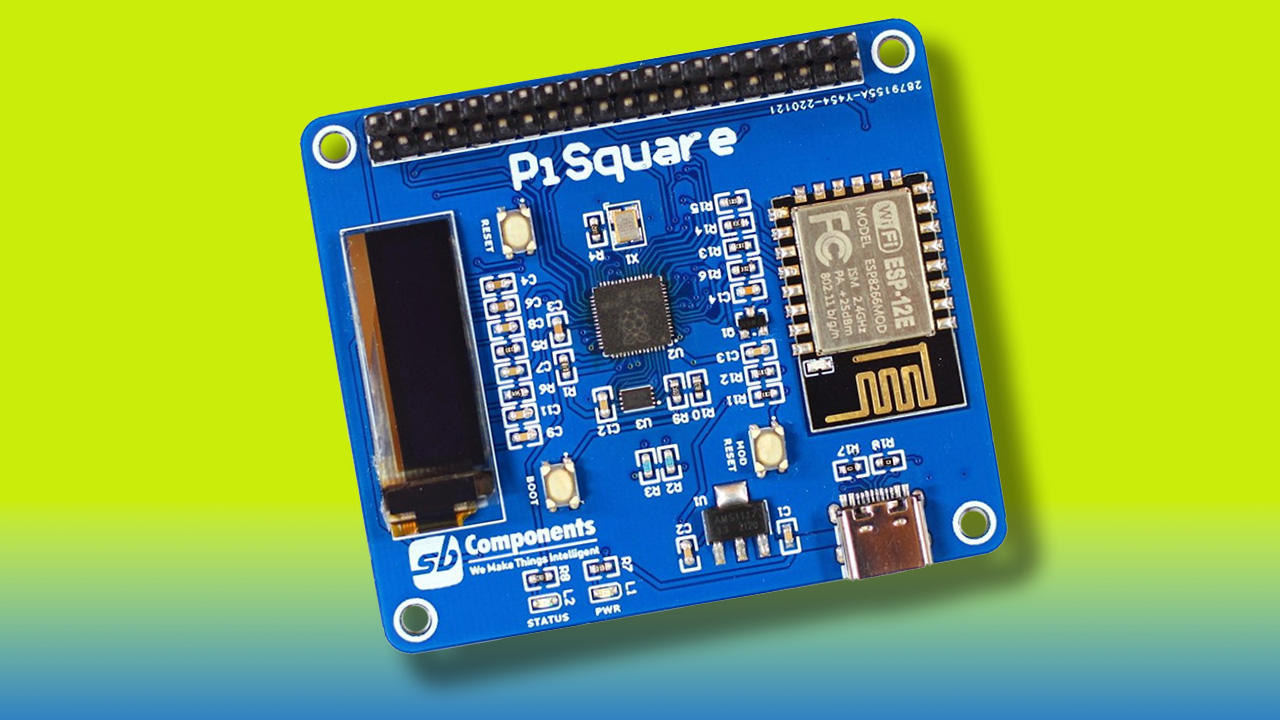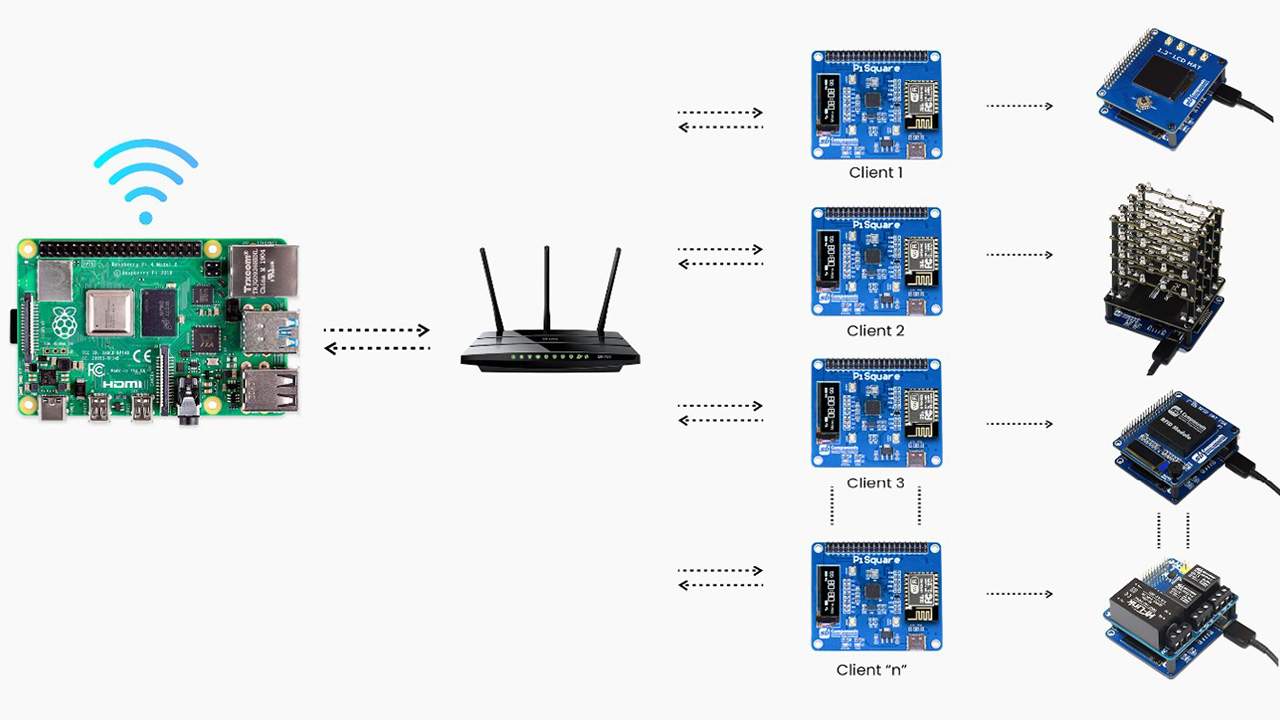New PiSquare Board Wears Many Wi-Fi Connected HATs
It's a Kickstarter

A new Kickstarter project has appeared but has not yet begun that may be of interest to fans of the single-board computer — those not swamped under the plethora of new boards revealed recently, anyway — as it combines an onboard RP2040 chip with the ability to connect multiple Raspberry Pi HATs with Wi-Fi so you don't have to multi stack. There's even a tiny screen.

Called the PiSquare, the secret behind its connection to multiple HATs is Wi-Fi. One Pi, set up as a server, can communicate with multiple PiSquares, each with a HAT attached. It’s a clever idea that we didn’t see coming that solves many of the problems of using more than one HAT with a Pi. It also allows you to connect two of the same HAT to a Pi, something not previously possible.
That Wi-Fi comes via an ESP-12E module which means HATs can be controlled via a smartphone if needed. Each PiSquare is powered via its own USB-C port and contains an RP2040 microcontroller chip, 16MB of flash storage, a tiny 0.91in OLED screen (purpose currently unknown, but some sort of HAT status display would make sense), and 40 GPIO pins in a Raspberry Pi configuration. The board can be programmed using socket programming — a method applicable to both Python and C — and very likely using the usual R2040 methods, too.
SB Components, the company behind the Kickstarter campaign, has previous experience in this area, as it already makes the Pistack, a Pi HAT that allows three more HATS to be used concurrently on a single Pi board.
There's no exact date for the start of the Kickstarter campaign, but you can sign up for a launch notification at the project’s holding page.
Remember that crowdfunding a project does not guarantee that you receive a finished product. Backing a crowdfunded project is akin to an investment; you believe in the project and want it to succeed. You are not purchasing a retail product.
Get Tom's Hardware's best news and in-depth reviews, straight to your inbox.

Ian Evenden is a UK-based news writer for Tom’s Hardware US. He’ll write about anything, but stories about Raspberry Pi and DIY robots seem to find their way to him.